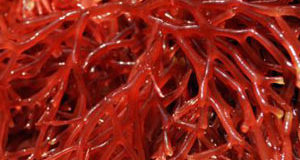Review Overview
Useful diet tip for all
Scientific basis
One of the biggest hidden threats to our health is the consumption of all forms of sugar. In addition to its detrimental effects on the body’s proper pH balance, a major problem stemming from sugar consumption has to do with a chemical process called glycation.
In simplest terms, glycation refers to the combination of a sugar and a protein molecule. Most everyone has seen the effects of glycation in the kitchen. During baking, sugar combines with certain amino acids in grain proteins. This chemical reaction causes bread and pastries to turn brown. The same reaction also occurs when meats are glazed and coffee is roasted.
In the body, glycation also occurs when the sugar in your blood (glucose) combines with the amino acids tryptophan, lysine, and arginine. This reactive process creates certain byproducts known scientifically as advanced glycation endproducts. And in terms of what they do inside the body, their acronym says it all: AGE.
How Glycation “AGEs” Your Body
To help get a better picture in your mind about AGEs, visualize the clear, runny portion of a raw egg. This part of the egg is mostly protein. When you heat this clear portion of the egg, it quickly and permanently transforms from a runny, clear liquid to a solid white mass.
When glycation occurs and AGEs form within the body, the affected proteins are changed forever—just as with the egg. Unfortunately, the long-term health consequences of this can be disastrous.
For example, when proteins in blood vessels undergo glycation, you get stiffer, less flexible arteries, which lead to higher blood pressure, plaque formation, blood flow blockages, heart and artery disease, and eventually, stroke or heart attack. The smallest blood vessels are the hardest hit, such as those in the back of the eye, the kidney and the brain. These areas require a constant supply of glucose to meet their high energy requirements; as a result, they have the highest degree of glycation.
David Williams
 Vitamin Agent The Health & Naturalistic Source
Vitamin Agent The Health & Naturalistic Source





